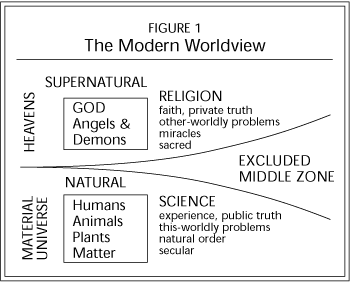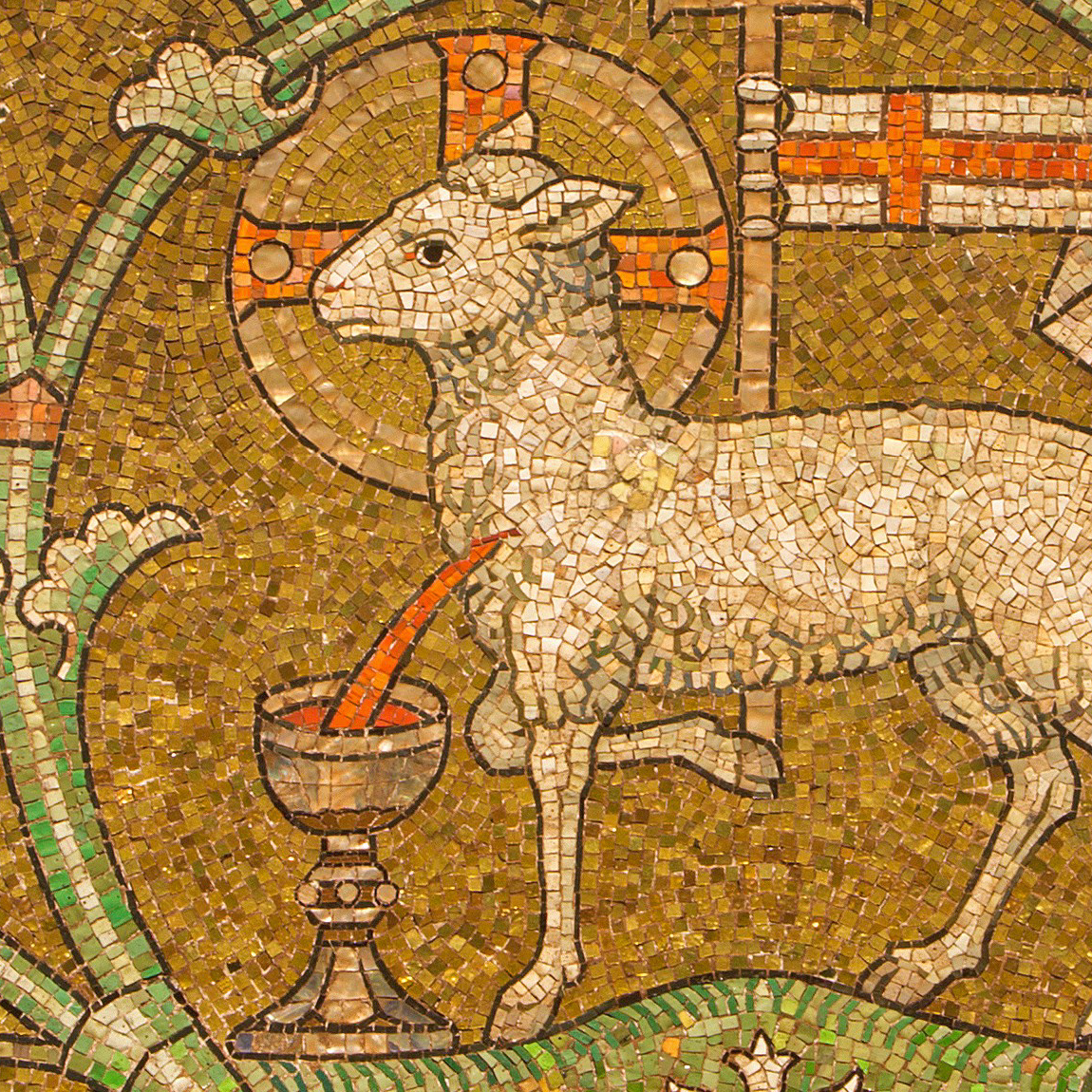Growing up, I was never taught the Christus Victor (Christ the Victor) view of the atonement.
But I lived it.
In college I had very intense spiritual experiences in which I learned the reality that the “one who is in you [Jesus] is greater than the one who is in the world [Satan]” (1 John 4:4).
I learned that Jesus, and his name, is more powerful than the spiritual powers of darkness and evil. I learned that spiritual warfare wasn’t just for books, missionaries, or politics by another name. It was real.
So I want to lay out a summary of this view, which I think is incredibly helpful, and more faithful to the overall story of Scripture.
What Is the Christus Victor View of Atonement?
Like before, I’ll summarize the work of an author—this time Greg Boyd—from The Nature of the Atonement: Four Views.
Warfare In Scripture
This view emphasizes the warfare imagery and reality that we regularly find in Scripture but often overlook because of our Western biases (Boyd has an entire book on this called God at War: The Bible and Spiritual Conflict).
Old Testament
The Old Testament is full of conflict between God and false gods, between God and cosmic forces of chaos. The Psalms speak of this conflict between God and water monsters of the deeps (an ancient image for chaos) (Ps. 29:3-4; 74:10-14; 77:16, 19; 89:9-10; 104:2-9, etc) (25).
The liberation of Israel from Egypt wasn’t just a conflict between Pharaoh and Moses. It was really between God and the false gods of Egypt.
Regardless of whether you think these descriptions are literal or metaphorical, the reality that the Old Testament describes is that we live in a “cosmic war zone” (26).
New Testament
And the New Testament intensifies this perspective.
Satan is named as a regular character in the divine drama. He is the one who is “the ruler of this world” (John 12:31; 14:30; 16:11), who can offer all the kingdoms of the world to Jesus (Luke 4:5-6) because the entire world is “under the power of the evil one” (1 John 5:19) who is the “the ruler of the power of the air” (Eph. 2:2) (26-27).
Not only Satan, but hostile powers are regularly named. They are called the “rulers”, “principalities”, “powers” and “authorities”, who have “dominion”, who are “elemental spirits” and “spiritual forces” (Rom. 8:38; 13:1; 1 Cor. 2:6, 8; 15:24; Eph. 1:21; 2:2; 3:10; 6:12; Col. 1:16; 2:10, 15; Gal. 4:3, 8-9).
Spiritual Powers Are Real
As you can see, the Christus Victor view, which is popular outside the West, believes that spiritual entities are real and exert real influence (power) in the world.
Missiologist and anthropologist Paul Hiebert claimed that the West suffered from “The Flaw of the Excluded Middle”, where we think that spirits, demons, curses, magic, and the like are all just fantasies and fairy tales.
In the West we tend to think of the world having two stories to it. The top one where God lives and the bottom one where we live.

The penal substitution view functions within the two-story view where God is holy in the top level who needs to deal with sin on the bottom level.
But most of the world, and the biblical worldview, has three levels. The middle level is where all the spiritual powers dwell. And from this middle realm they harass and enslave humanity because of sin.
I explain—in 16 slides—how Jesus is King over excluded middle here.
Jesus’ Victory over the Powers
Within this situation of living in a “cosmic war zone” where spiritual forces seek to ensnare and enslave humanity, Jesus enters the scene.
For the Christus Victor view, it is not just the death of Jesus, but his life and resurrection, that impacts the spiritual realm on our behalf.
This is what Boyd says, pointing to the texts:
According to the New Testament, the central thing Jesus did was drive out the “ruler of this world (John 12:31). He came to “destroy the works of the devil” (1 John 3:8). He came to “destroy the one who has the power of death, that is the devil” in order to “free those who all their lives were held in slavery by the fear of death” (Heb. 2:14-15). Jesus lived, died and rose again to establish a new reign that would ultimately “put all his enemies under his feet” (1 Cor. 15:25). Though “ the strongman” was “fully armed,” one who was “stronger than he” had finally arrived who could attack and overpower him (Luke 11:21-22). While the cosmic “thief comes only to steal and kill and destroy,” Jesus came into the world to vanquish the thief so that all “may have life, and have it abundantly” (John 10:10). Jesus “disarmed the rulers and authorities and made a public example of them, triumphing over them (Col. 2:15). In a word, Jesus came to end the cosmic war that had been raging from time immemorial and to set Satan’s captives free (Luke 4:18; Eph. 4:8). (page 30)
Boyd turns to Peter’s sermon on Pentecost—the first Christian sermon—which speaks of the exalted Christ making his enemies a footstool by quoting Ps. 110 (which is the most quoted passage in the New Testament in reference to Jesus).
The victory of God is on the lips of Peter.
The victory of Jesus over his enemies, during his life by healing the sick and liberating the spiritually and socially oppressed, and in his death and resurrection, has defeated the evil power.
A Ransom for Many
The Christus Victor view also has aspects of a substitution view (just not penal substitution).
As Mark 10:45 says, “For even the Son of Man did not come to be served, but to serve, and to give his life as a ransom for many.”
Jesus “has died as a ransom to set [Israel] free from the sins committed under the first covenant” (Heb. 9:15). And not just Israel, for Jesus “gave himself as a ransom for all people” (1 Timothy 2:6).
As our ransom Jesus has redeemed us, a redemption that is also the forgiveness of sin (Eph. 1:7; Col. 1:12-13; Heb. 9:12).
Doesn’t Ransom/Redeem/Redemption Mean Payment? some ask.
And if payment, then isn’t the demand death? And if death then aren’t we right back to penal substitution?
When humans in the Bible offer a ransom other humans, then yes, there is a ransom price that is paid. And so people think that this must also be true for God—that God pays a price to redeem humanity, and the price paid is the death of Jesus.
But that’s not how the Bible speaks of God redeeming his people. When ransom, redeem, and redemption are used to speak of God’s action, there is no “price” that is exchanged and there isn’t a third party that receives the price.
God did not pay Egypt a price to redeem Israel from slavery. God just liberated them.
God did not pay a price to Assyria or Babylon. God just freed them from slavery.
Indeed, the whole Passover feast is a celebration of the ransom, redemption, liberation, or deliverance of Israel from slavery in Egypt.
And Passover is when Jesus was crucified—to free us from the slavery of a more powerful enemy, sin and death.
Why Did Jesus Die? Who Demands Death?
In the Christus Victor view, the death of Jesus was necessary, not as a payment of death for death, or the penalty for sin, but as the means by which God—who is LIFE itself—entered into the farthest reaches of the destruction created by sin—DEATH itself—so that God could begin renewing creation from that place.
In Jesus death and resurrection, graves are turned into gardens again!
As Boyd says, “In the Christus Victor view…Jesus died as our substitute and bee our sin and guilt by voluntarily experiencing the full force of the rebel kingdom we have allowed to reign on earth” (43).
Summary
So biblically, while we certainly need forgiveness for the sins we commit. We also need freedom from the sins committed against us.
And we need liberation from the reign of sin and death.
And this is exactly what Jesus accomplishes in his life, death, and resurrection.
If you want to know all my thoughts on the sacrifice of Jesus, especially the parts we are likely to forget, check out The Forgotten Sacrifice of Jesus.
Otherwise, so you don’t miss future posts because of social media’s crazy algorithms, sign up for my newsletter.

